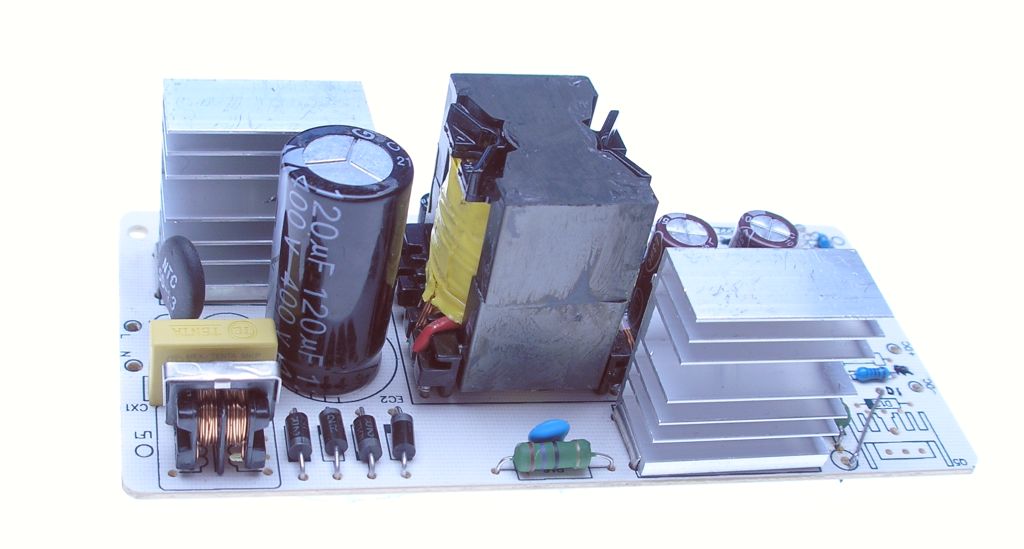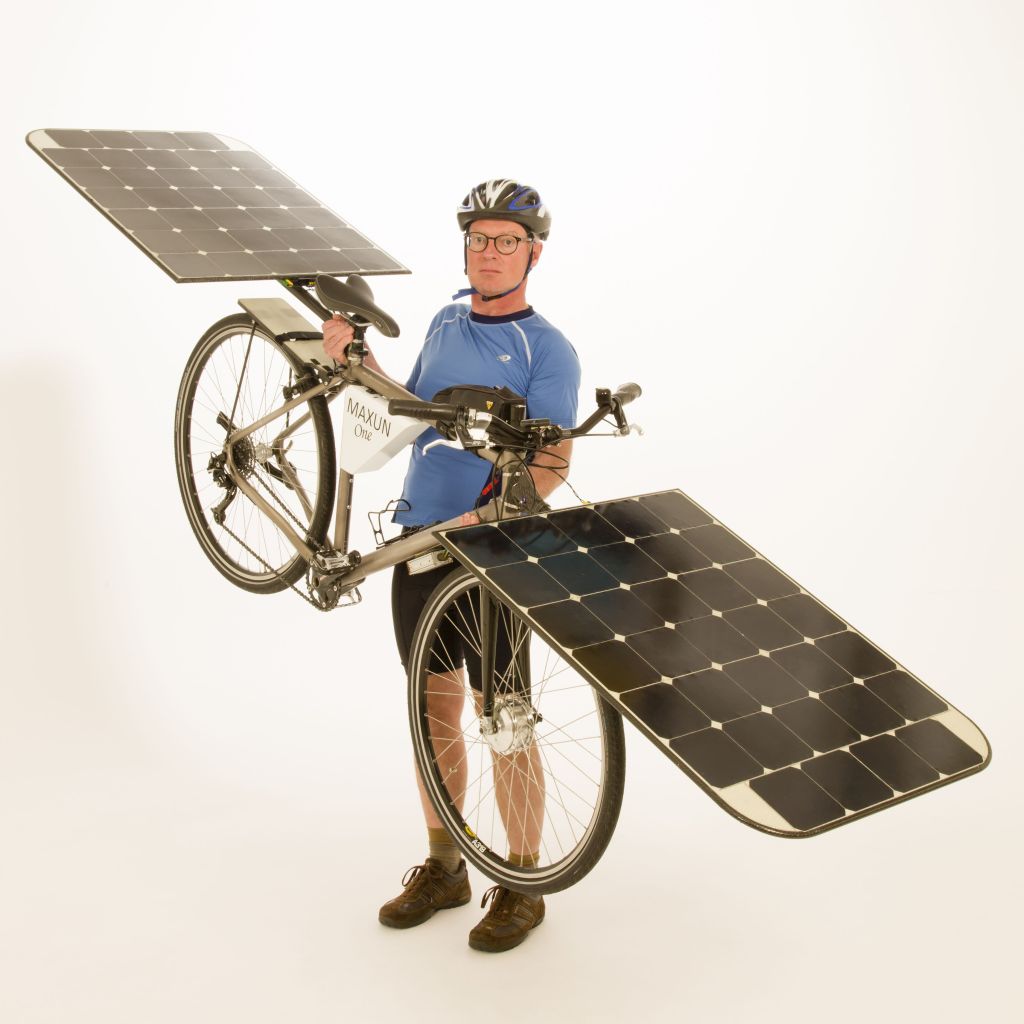Lightweight high power fast battery charger
Related articles
- DIY adjustable 1A to 5A ebike battery charger
- Ultra fast charging batteries for e-bikes
- Battery management system (BMS) with internal resistance (IR) compensation
The challenge: a 1000W battery charger of 400g
I want to build an extremely lightweight ebike as base for my Maxun One solarbike:
Therefore, instead of a large and heavy battery, a small and lightweight battery will be used. The idea described here, is that a small battery is no problem if we can charge this on the go in 20 minutes. As we will see later, we need a charger of about 1000W, but these are too heavy. The challenge is to build a 1000W charger with a weight less than 400g. That is 2500W/kg and although these have not yet been developed, I think it is possible.
While looking for other examples of lightweight power supplies, I came across the Panasonic microwave HV inverter. It is a half-bridge converter of 1000W with a weight of just 470g. While looking for other examples of lightweight power supplies, I came across the Panasonic microwave HV inverter.
 Panasonic HV inverter 1000W / 470g
Panasonic HV inverter 1000W / 470g
It is a half-bridge converter of 1000W with a weight of just 470g.
I wanted to know if it would be possible to build a battery charger in the same way as the Panasonic converter, so with the same low weight. Therefore, I bought a Panasonic microwave oven HV inverter and re-engineered it, see my article about it here.
Who can help with this interesting challenge?
Increasing the power of the Amazon 36V 5A flyback CR6842S battery charger
The easiest way to make a high power lightweight battery charger is to modify an existing charger, such as this:
 Battery Charger 36V 5A CR6842S 75x45x160mm
Battery Charger 36V 5A CR6842S 75x45x160mm
I came across a remarkably lightweight 36V 5A battery charger on Amazon. I took it apart to see how it works. It is a flyback converter without output filtering chokes, which explains the low weight. The Amazon charger has no brand of type number, from now on we will call it the CR6842S charger, since that is the used controller chip. We will discuss the CR6842S later. The power of the Amazon charger is 210W, but maybe that it can be increased by changing the frequency and the windings.
 Amazon Lightweight high power fast battery charger
Amazon Lightweight high power fast battery charger
To save weight, instead of large and heavy heat sinks, small heat sinks are used which will be forced cooled by a powerful, but lightweight, cooling fan. The fan will also have to cool the transformer because it will get very hot.
Note that it doesn’t have PFC and therefore does not comply with CE regulations.
Who can help with this interesting challenge?
You can use this topic at Endless SphereEndless Sphere.
The required charging power for ebike batteries
The battery has to be charged on the go in 20 minutes, see my article Ultra-fast charging batteries for e-bikes. With a battery of 250Wh, the required charger power is 60min / 20min * 250Wh = 750W.
 Testing the flyback battery charger with the CR6842S
Testing the flyback battery charger with the CR6842S
Power Supply Module 36V 5A
Amazon also has also this Power Supply Module 36V 5A. It is smaller than the battery charger.
 Amazon Lightweight 36V 5A high power fast battery charger
Amazon Lightweight 36V 5A high power fast battery charger
Common power to weight ratios
Here are some examples of power to weight ratios of some battery chargers.
Kingpan charger
I described in this article how I reduced the weight of the Kingpan half-bridge 36V 8A battery charger PCB to 560g. Also, I increased the current to 10A. The power is 42V * 10A = 420W and the power to weight ratio is 420W / 560g = 750W/kg. Note that it doesn’t have PFC and therefore does not comply with CE regulations.
Amazon CR6842S charger
The weight is 440g including the cables.
The PCB has a weight of 170g. The power is 42V * 5A = 210W, the power to weight ratio is 210W / 170g = 1200W/kg.
Panasonic microwave oven HV inverter
See my article about the Panasonic microwave oven inverter. The power is 1000W, the weight is 470g, so 2100W/kg.


